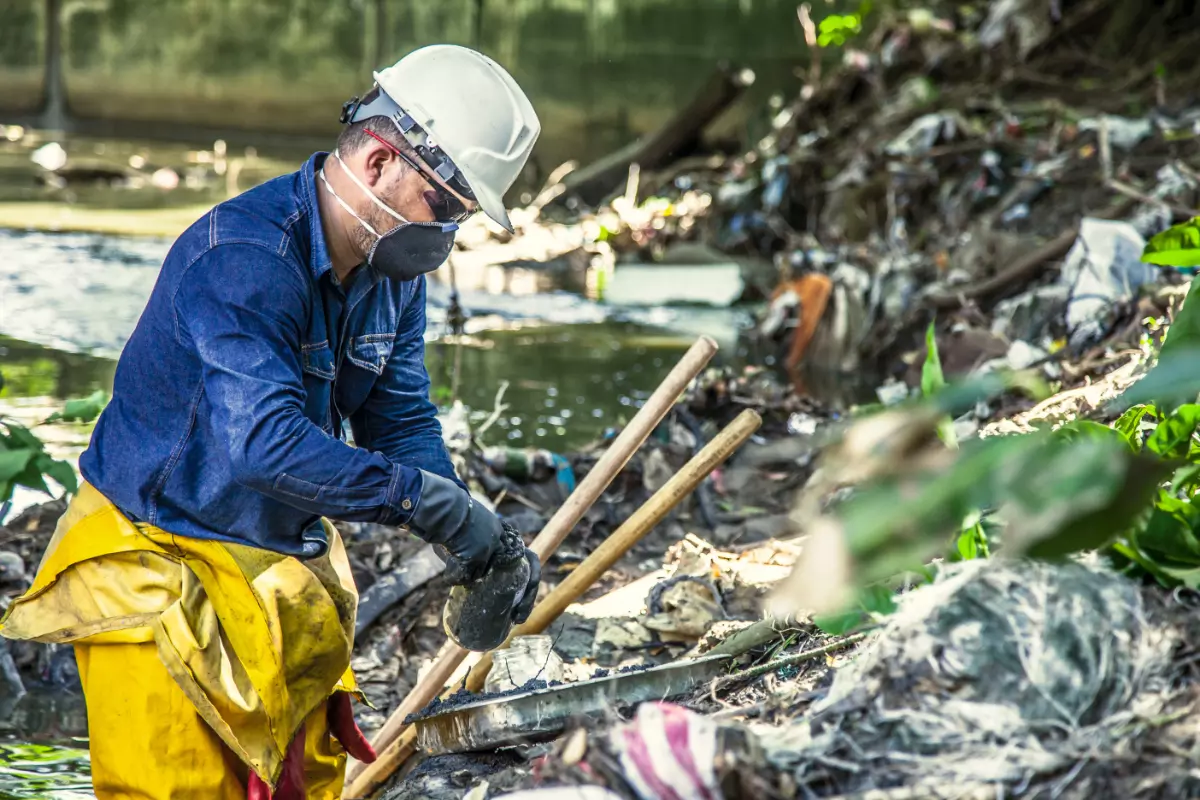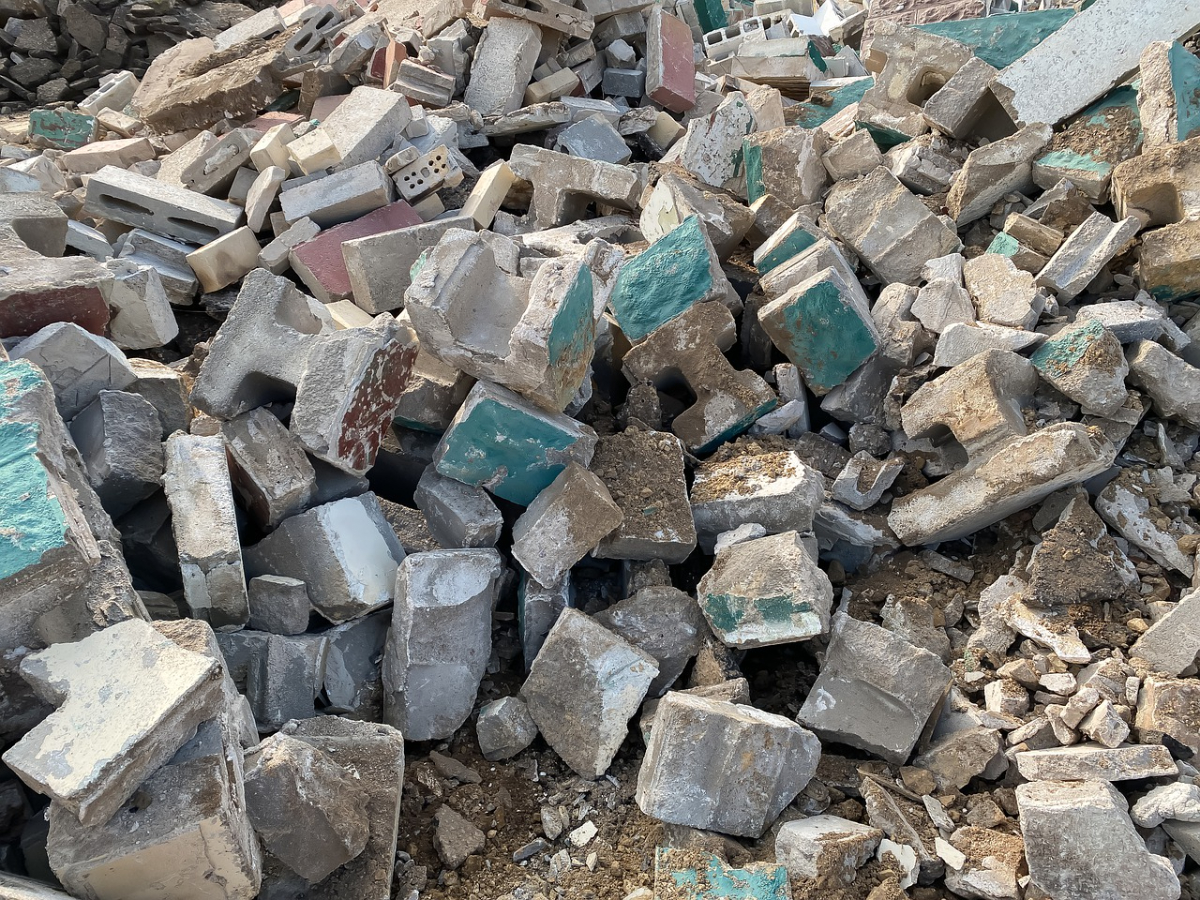How do builders get rid of waste? Builders typically dispose of waste through methods like skip hire, grab lorry services, and professional waste management companies.
They separate recyclable materials, such as metals and wood, from non-recyclable debris to minimise landfill use.
Builders may also use designated waste transfer stations to ensure waste is managed responsibly and in compliance with environmental regulations. Explore efficient waste removal solutions for builders that prioritise sustainability and legal compliance.
Skip Hire
Builders frequently use skip hire for waste disposal, as it is both convenient and efficient. Skips are available in various sizes, catering to different quantities of building waste. They can be delivered directly to the construction site, making it easy for builders to dispose of materials like soil, bricks, wood, and concrete.
Once the skip is full, it is collected, and the waste is transported for disposal or recycling. This method is particularly useful for large-scale projects generating a significant amount of waste. Hiring a skip is a straightforward process. Builders get in touch with a skip hire company, arrange the delivery and collection dates, and select the appropriate skip size.
It's essential to check local authority guidelines on skip permits, as some areas require permits for skips placed on public roads. Properly sorting materials is crucial for environmentally safe disposal.
Builders should ensure that items like glass, plastic, and plasterboard are placed correctly and not mixed with hazardous waste. This careful sorting helps to maintain safety standards and ensures that as much waste as possible is recycled.
Additionally, skips come in different types, such as roll-on roll-off skips and enclosed skips, which can be chosen based on the specific requirements of the project. Understanding the local regulations and selecting the right skip type and size makes the waste disposal process smoother and more compliant with environmental standards. This approach not only helps in managing waste efficiently but also contributes to sustainable building practices.
Man with a Van
Another popular option for waste removal is hiring a "man with a van" service. These services are especially suitable for smaller projects or spaces where a skip cannot be placed.
A man with a van can come to the site, load the building waste, and transport it for disposal or recycling. This option provides several benefits. First, it's a good choice for sites with limited space where skips might block access or infringe on property rights.
Additionally, man with a van services can remove various waste types, including soil, rubble, and packaging materials. They can handle mixed loads, which makes them convenient for dealing with different kinds of construction waste generated during a project.
Before hiring, it's important to check the service provider's waste disposal credentials to ensure they meet local regulations. Also, confirm any charges beforehand to avoid unexpected costs. Many builders prefer this service for its flexibility and the ability to schedule collections at convenient times.
However, it's crucial to remember that while this service works well for typical construction waste, it may not be suitable for hazardous materials, which require specialised handling and disposal methods.
Another key benefit is the speed of service. Man with a van services can often be arranged at short notice, making them ideal for last-minute clearance needs or when project timelines are tight. This rapid response can help keep construction projects on schedule, avoiding delays that can be costly and disruptive.
Furthermore, the personal touch provided by man with a van services often leads to better customer satisfaction. The operators can offer tailored solutions and adapt to specific needs or changes that may arise during a project. This level of customisation is typically not available with more rigid waste removal options like hiring a skip.
Man with a van services offer a versatile and efficient solution for waste removal in various scenarios. They provide flexibility, rapid response times, and the ability to handle mixed loads, making them a preferred choice for many in the construction industry.
Remember to check credentials and costs beforehand to ensure a smooth and compliant service. For any hazardous material, always seek specialised disposal methods to ensure safety and compliance with regulations.

Local Tips
Builders can also take construction waste to local tips, also known as waste recycling centres. These facilities, managed by local authorities, accept various types of waste, including building materials, soil, and rubble.
However, it is important to check which materials each centre accepts, as some have restrictions, particularly on hazardous items like asbestos or certain types of plasterboard.
Using local tips can be cost-effective for builders, especially for small quantities of building waste. Builders must ensure they transport the waste safely to avoid spillage or accidents on the way. Many recycling centres provide separate areas for different materials to aid the recycling process. For instance, wood, glass, and plastic can often be recycled separately from general construction waste.
It is essential to be mindful of each site's opening hours and any rules regarding the type and amount of waste accepted. Builders may need a waste carrier's licence or permission from the local authority to dispose of commercial waste at these tips.
Proper documentation and adherence to regulations ensure that builders can dispose of waste responsibly and within legal requirements, helping to maintain a cleaner and safer environment. Always check local guidelines to ensure compliance with waste disposal regulations.
Skip Bags
Skip bags are a flexible and convenient solution for waste removal, especially for smaller projects or spaces with limited access. Available in various sizes, these bags can hold different types of building waste and are typically purchased from local hardware stores or online. Once filled, the waste is collected, and the skip bag is taken away for disposal or recycling.
Skip bags are often used for disposing of materials like soil, bricks, wood, and packaging. They are easy to store until needed and can be placed on private property without requiring a permit, unlike some skips. The key is to ensure the bag is filled correctly without overloading it, as overloaded bags may incur additional charges or might not be collected.
This method is ideal for builders needing a low-cost and simple solution for smaller quantities of waste. However, it's important to be aware of any restrictions on the types of waste that can be placed in skip bags. For instance, certain hazardous materials might need special handling and disposal.

Hazardous Waste
Handling and disposing of hazardous waste is a significant concern for builders. Hazardous waste includes materials such as asbestos, certain types of paint, and chemicals that can pose health risks.
Builders must follow strict regulations for the safe removal and disposal of these materials to protect themselves, their customers, and the environment. Asbestos, for example, requires specialised removal methods as it is extremely dangerous to health. Builders must contact certified asbestos removal experts to safely handle and dispose of it.
Similarly, materials contaminated with lead or other toxic substances must be dealt with by professionals trained in handling hazardous waste. This ensures that all safety protocols are followed, minimising the risk of releasing harmful substances into the environment.
Builders should also be aware of regulations regarding the disposal of hazardous waste to avoid legal issues and ensure they are meeting environmental standards. Failing to dispose of hazardous waste correctly can result in serious legal penalties and significant environmental damage. Being informed about the legal requirements helps builders remain compliant and avert any potential fines or sanctions.
In addition, builders should always check with local authorities and environmental agencies to understand the necessary procedures for dealing with hazardous construction waste. Different regions may have specific guidelines and regulations that must be followed.
Properly handling and disposing of hazardous waste is not only a legal requirement but also an important responsibility to ensure the safety and well-being of everyone involved in the project.
Continuous education and training in hazardous waste management are crucial for builders to stay up-to-date on best practices and evolving regulations. Investing in appropriate training for their workforce equips builders with the knowledge and skills needed to manage hazardous waste safely.
Builders must remain vigilant and informed regarding the handling and disposal of hazardous waste.
By adhering to regulations and working with certified professionals, they can protect their health and safety, minimise environmental impact, and avoid legal complications. Proper hazardous waste management is a crucial aspect of responsible and sustainable construction practices.
Get in touch today if you have any builders waste or hardcore rubble that needs collecting and disposed of correctly in Maidstone and Kent. Our experience and professionalism can help alleviate any stress or concerns you have concerning wastage.


